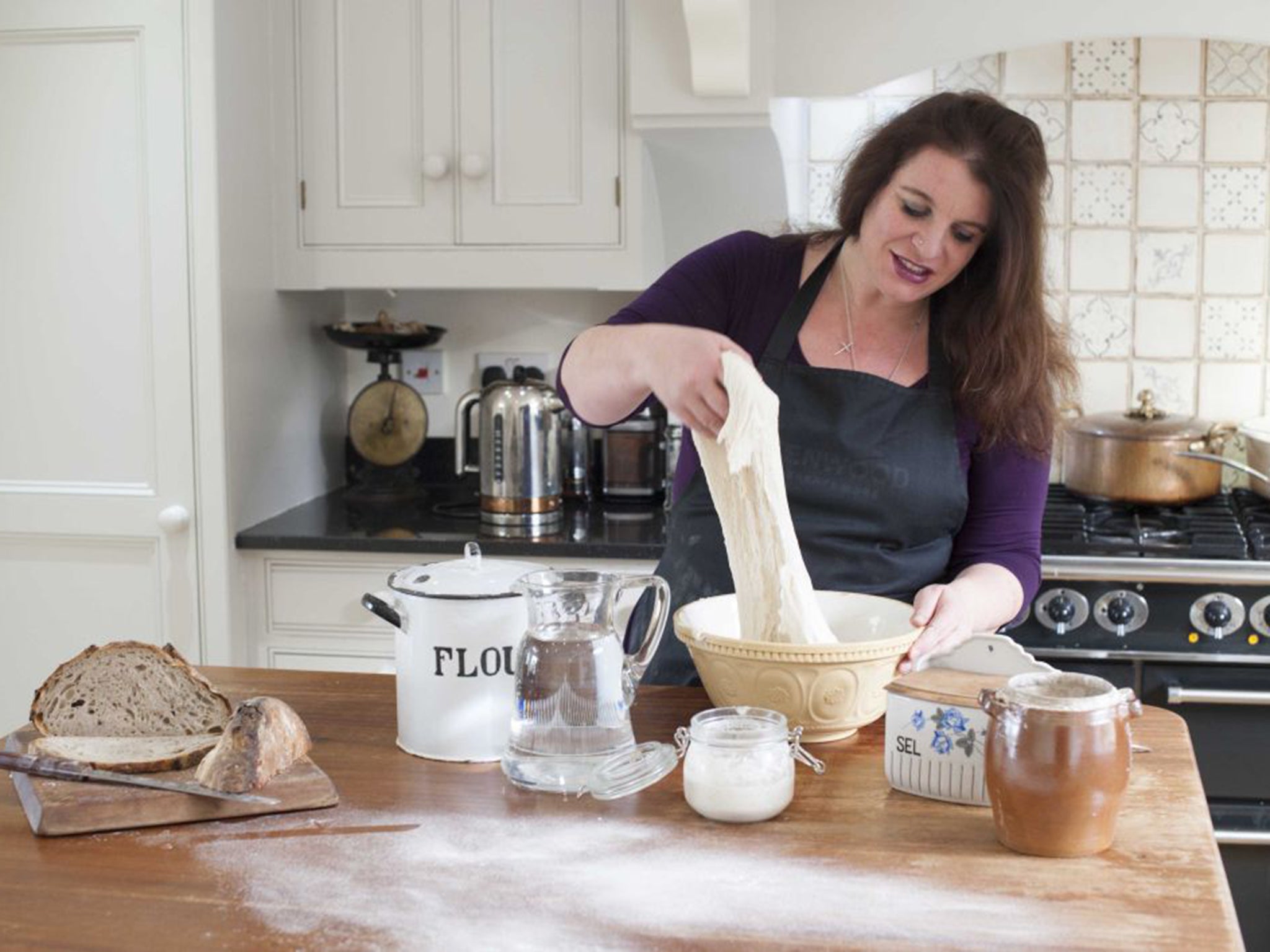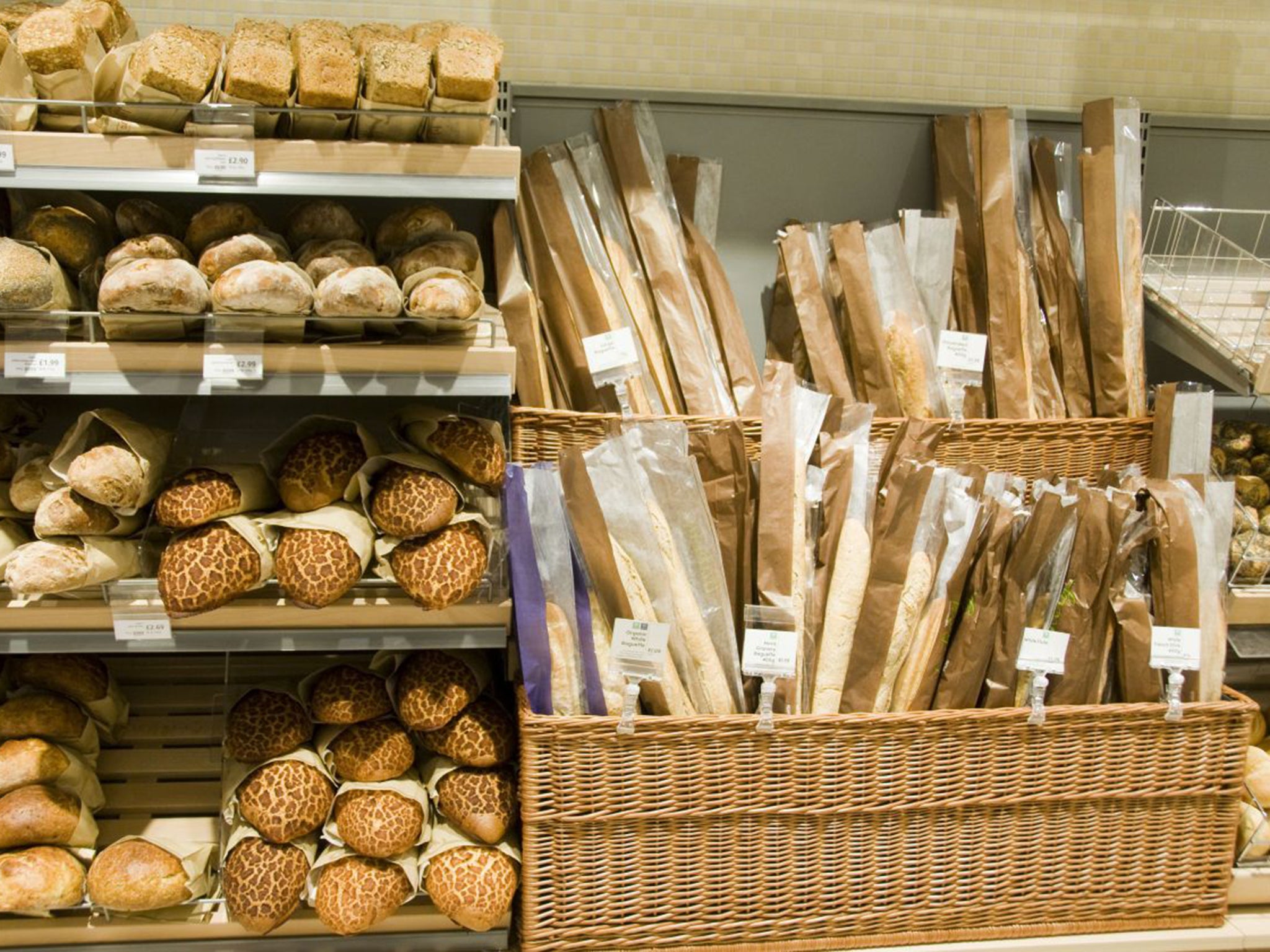Supermarkets cash in on sourdough bread craze as popularity surges
Rising sales prompt supermarkets to muscle in on the territory staked out by their artisan counterparts

Your support helps us to tell the story
From reproductive rights to climate change to Big Tech, The Independent is on the ground when the story is developing. Whether it's investigating the financials of Elon Musk's pro-Trump PAC or producing our latest documentary, 'The A Word', which shines a light on the American women fighting for reproductive rights, we know how important it is to parse out the facts from the messaging.
At such a critical moment in US history, we need reporters on the ground. Your donation allows us to keep sending journalists to speak to both sides of the story.
The Independent is trusted by Americans across the entire political spectrum. And unlike many other quality news outlets, we choose not to lock Americans out of our reporting and analysis with paywalls. We believe quality journalism should be available to everyone, paid for by those who can afford it.
Your support makes all the difference.Tangy and chewy, sourdough bread is a loaf-lover’s ticket to heaven. With only three ingredients - flour, water, and salt - it is more digestible than standard bread and more nutritious, too. Yet its surging popularity is leaving many with a sour taste for all the wrong reasons.
Rising sales have prompted supermarkets and industrial bakers to muscle in on the territory staked out by their artisan counterparts, launching their own versions in white, brown, or rye. But campaigners warn that sourdough fans are being duped into buying fake versions of the real thing, with potentially serious health consequences.
Authentic sourdough contains only that triumvirate of ingredients and requires a long fermentation process. This is what makes the bread easier to digest, which can help those with a yeast or wheat intolerance. But because time is money, big bakers prefer to speed up the breadmaking cycle, adding commercial yeast among other ingredients – something they are under no legal obligation to reveal to shoppers.
Now bakers are putting pressure on the Government to protect traditionally baked sourdough. Chris Heaton-Harris, Conservative MP for Daventry, is backing an industry-wide campaign for an “Honest Crust Act” to create legal definitions for a range of terms used in the naming, labelling, and marketing of loaves.

Chris Young, a spokesman for the Real Bread Campaign, said: “The problem is that some of what some retailers are marketing as sourdough simply isn’t the genuine article and there is nothing to protect shoppers.”
Supermarket in-store bakeries might label loaves as sourdough, he said, that “contain added baker’s yeast and perhaps flavourings and any number of artificial additives. The shopper wouldn’t know this as there will be no label to say so.”
Mikael Jonsson, the Swedish chef who bakes what food critic Fay Maschler thinks are the UK’s best loaves at his west London restaurant, Hedone, can’t keep up with demand. “Sourdough has become popular partly because people realise industrially made bread is not good for anyone to eat. The problem is a lot of hybrids are called sourdough but include yeast to ferment quickly. It’s easy to cheat, but you don’t get the characteristics of sourdough and certainly not the flavour.

“We definitely need protection but I don’t know how it should be done.” France and Germany have introduced regulation, but Mr Jonsson says the approach is “very complicated”.
Vanessa Kimbell, who teaches home bakers at her Sourdough School in Northamptonshire, has helped to spearhead the campaign. She says fake versions are so good that even she, a judge of the sourdough category at The World Bread Awards’, can’t tell the difference.
“What hope do people with genuine medical conditions have?” she asked.
A Simple Sourdough Bread Mix sold by Wright’s Baking, an Enfield, Middlesex-based supplier of home baking kits, includes “dried potato flakes, dextrose, and the emulsifier E472e” among its ingredients. A company spokeswoman defended its product, saying: “This is for people with busy lives who like to pop a mix into their bread machine, or to give kids confidence.”
A spokeswoman for Sainsbury’s said the supermarket chain complies “fully with legislation on the labelling of bread baked in our stores.” Its San Francisco Style Sourdough does not list its ingredients.
It is understood that Defra is looking into food labelling in general, and this would include listing the ingredients in supermarket sourdough.
Join our commenting forum
Join thought-provoking conversations, follow other Independent readers and see their replies
Comments